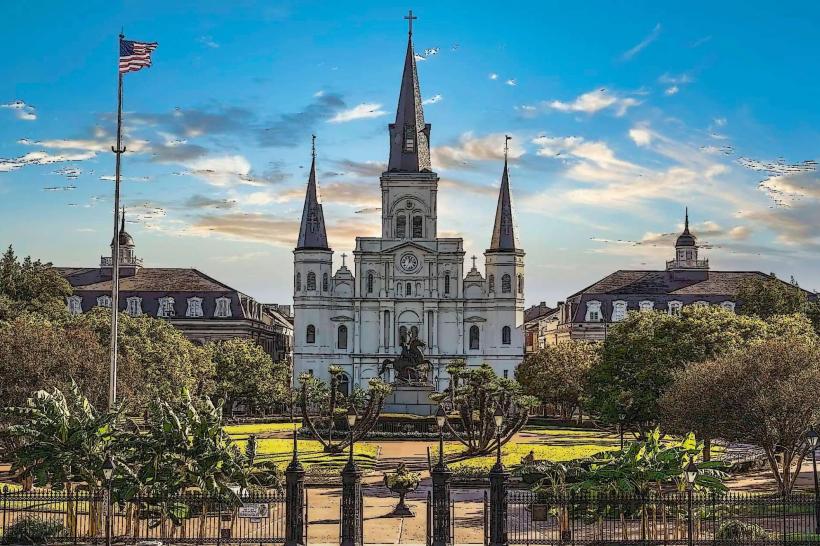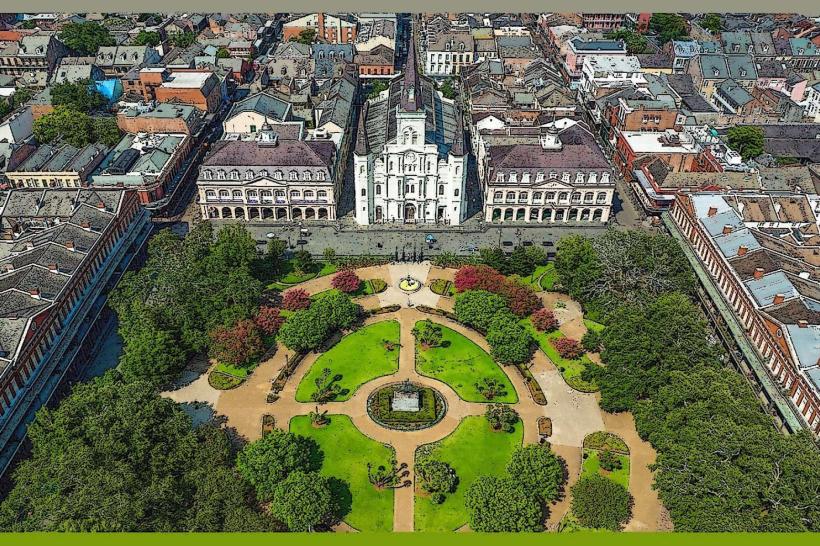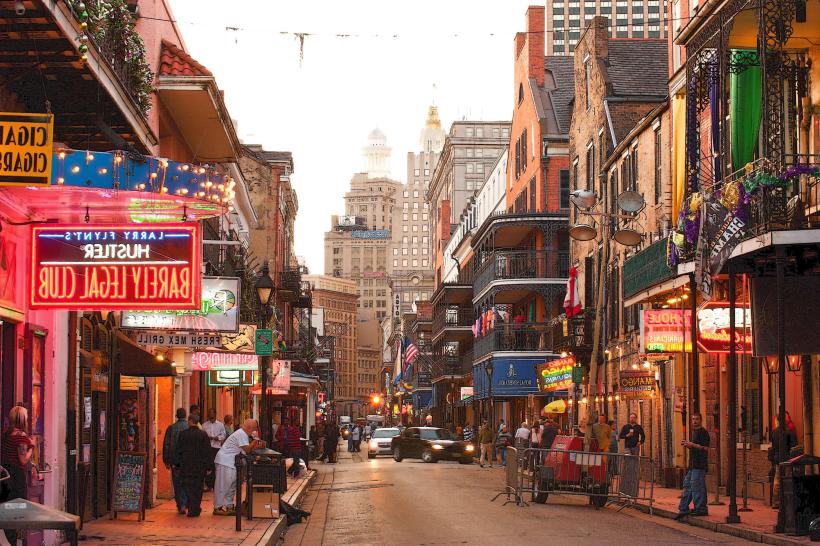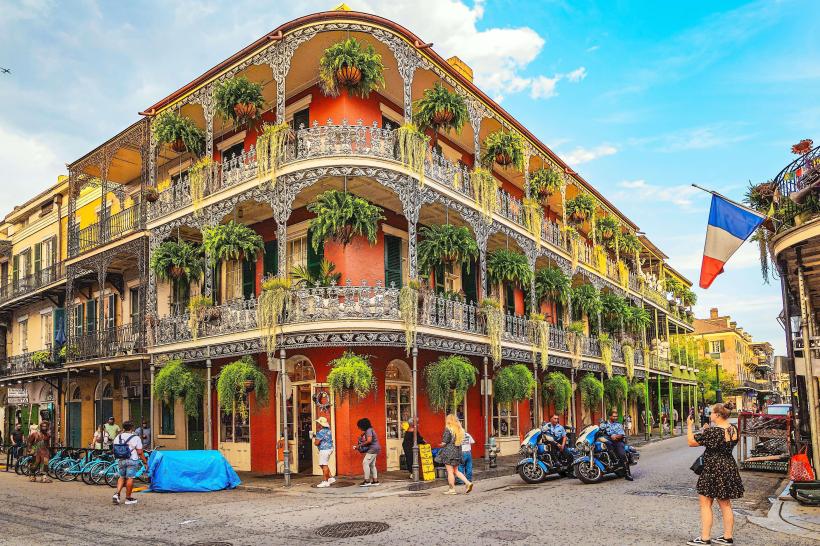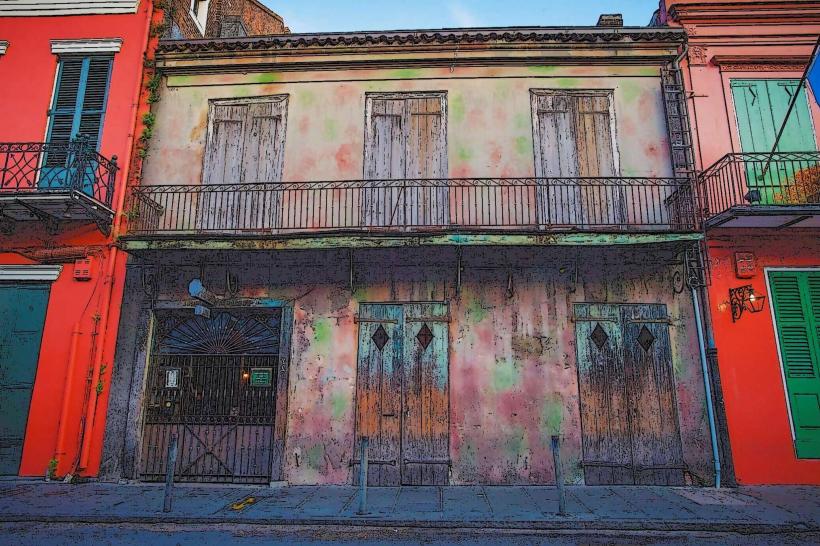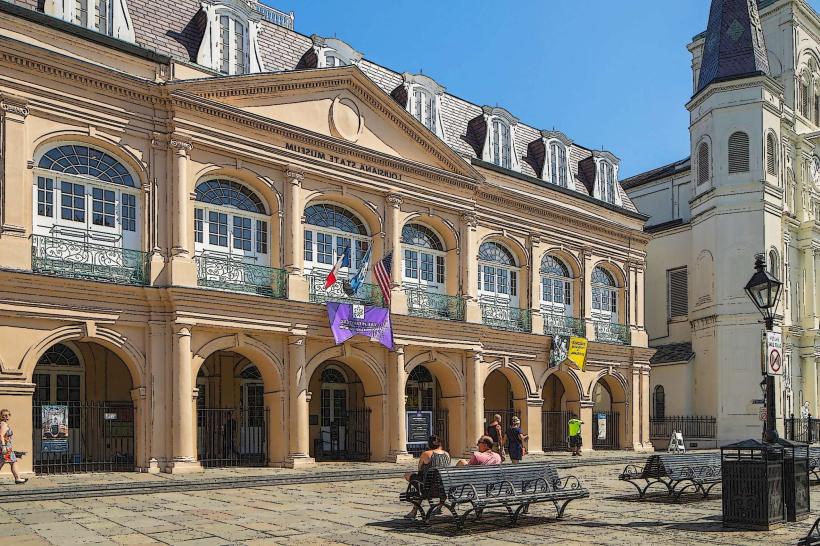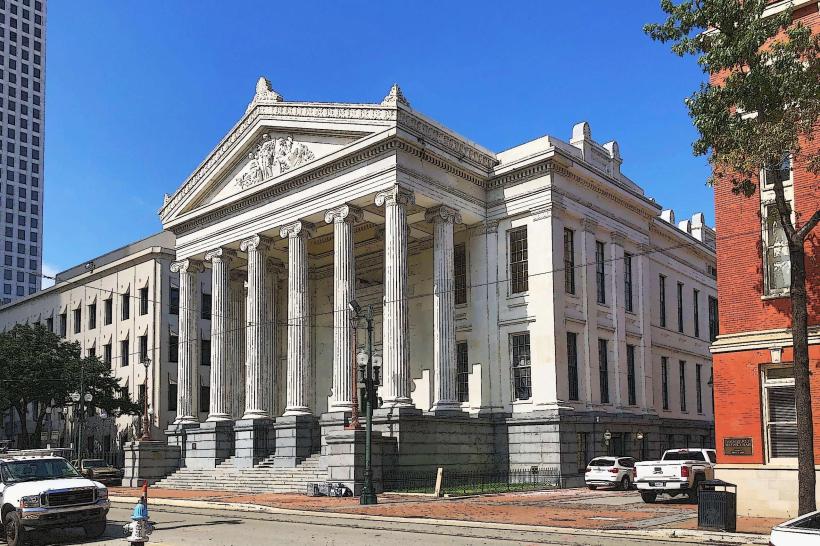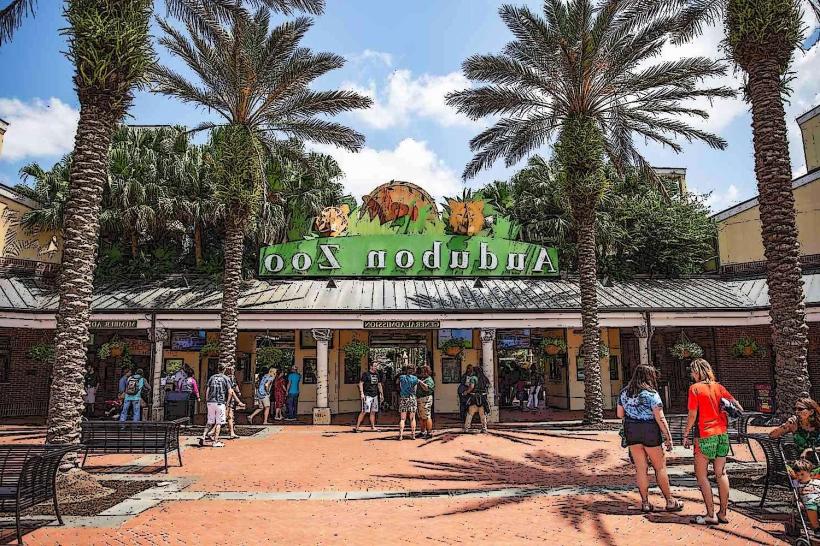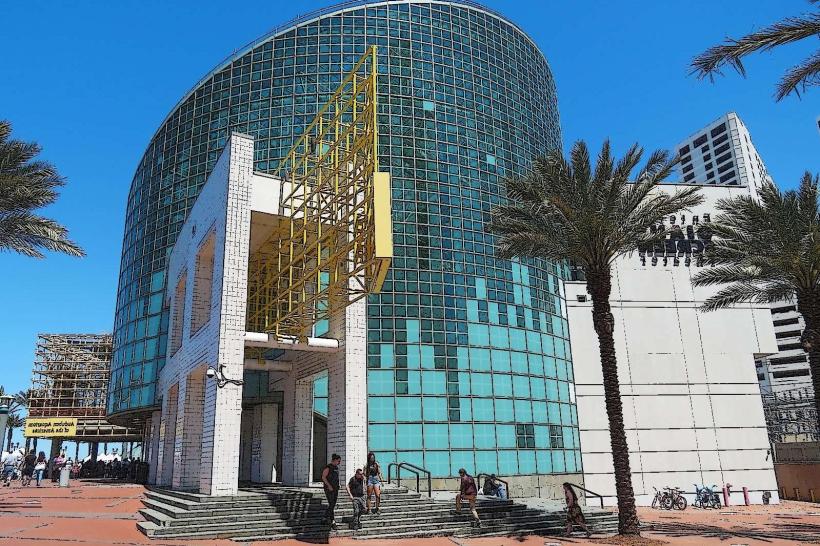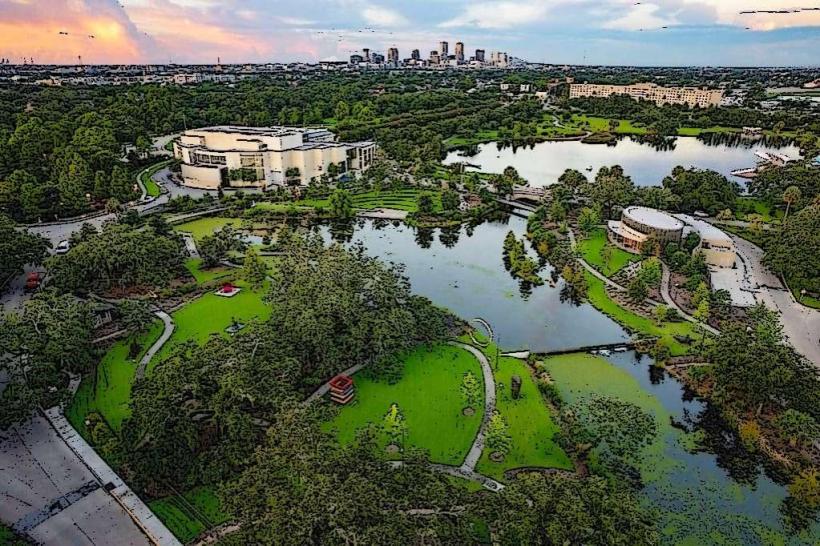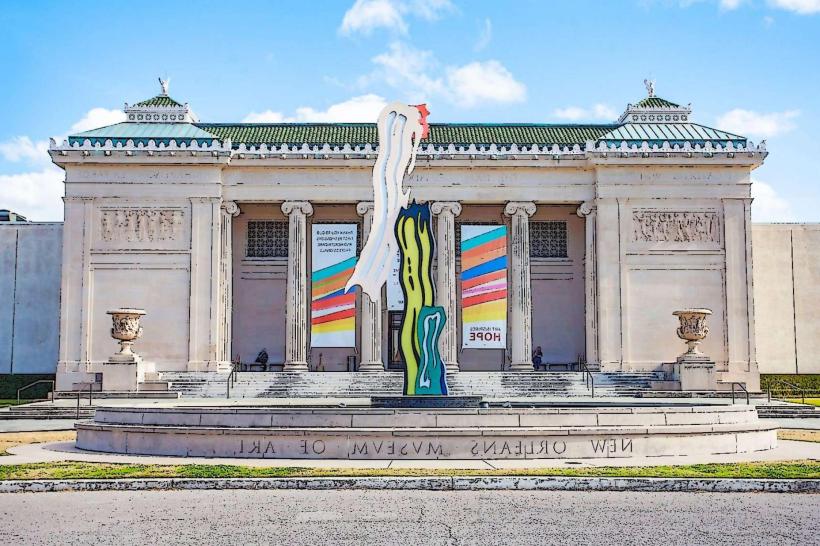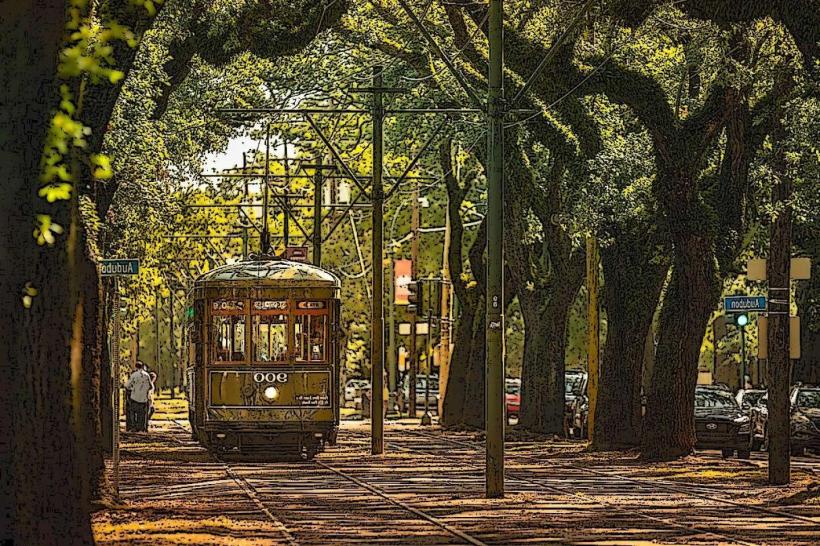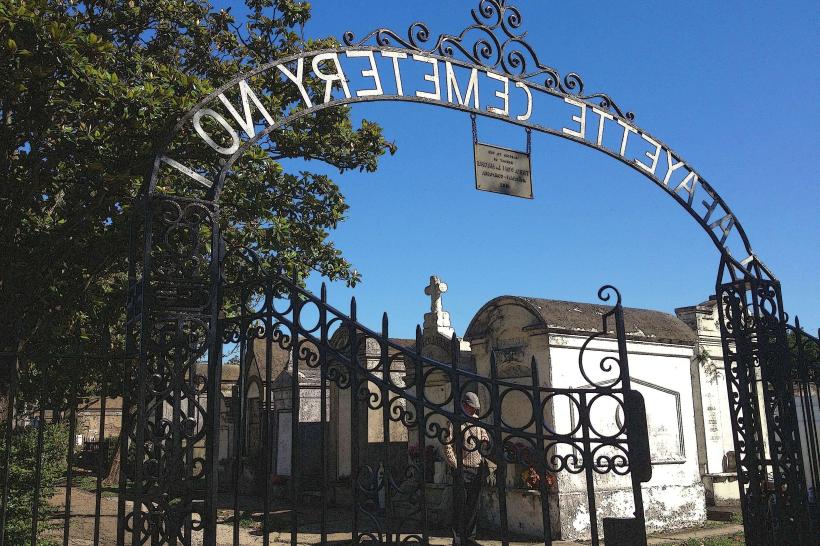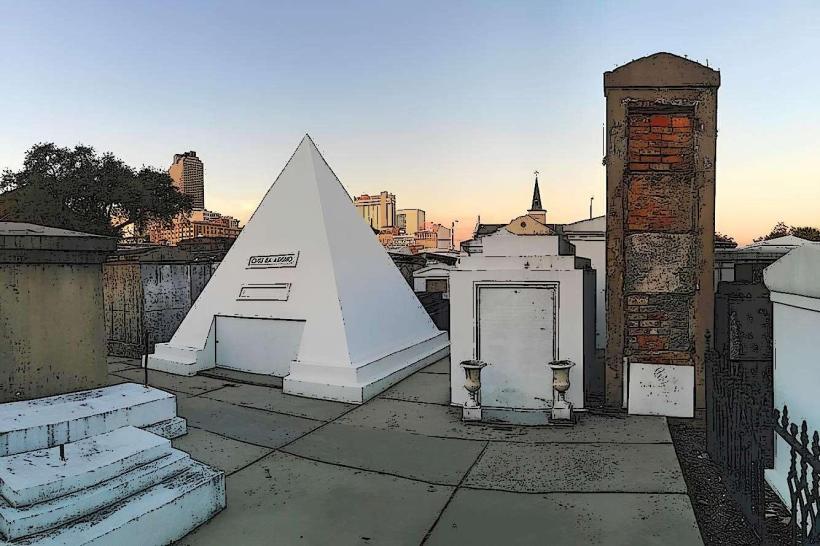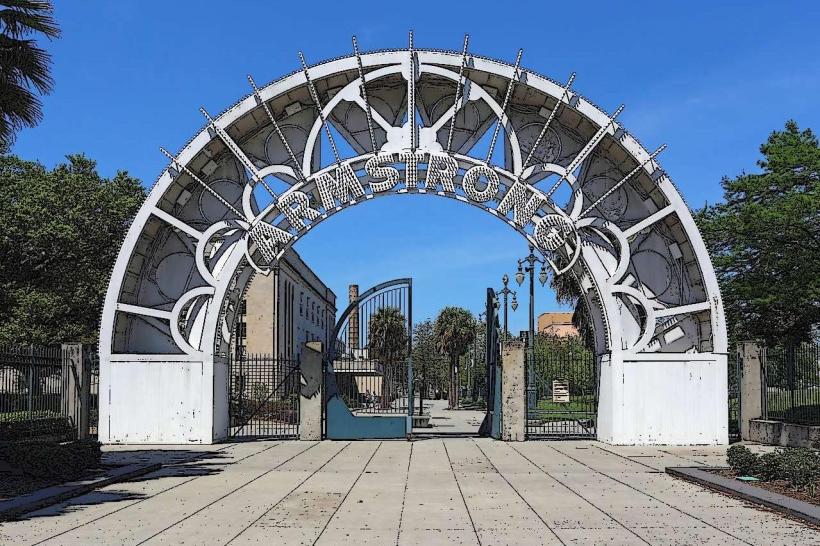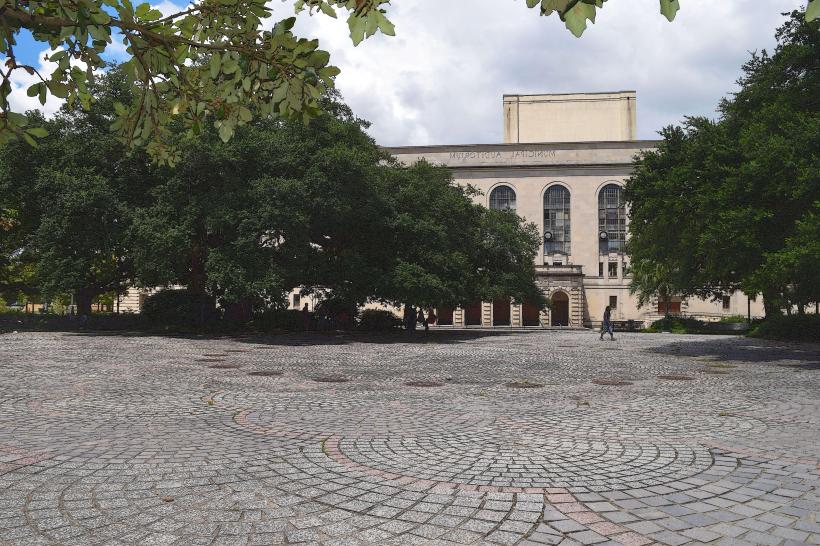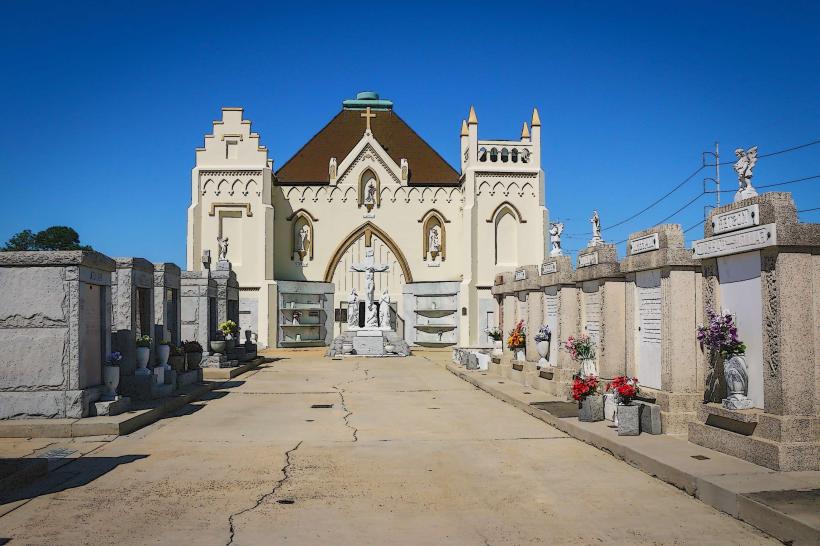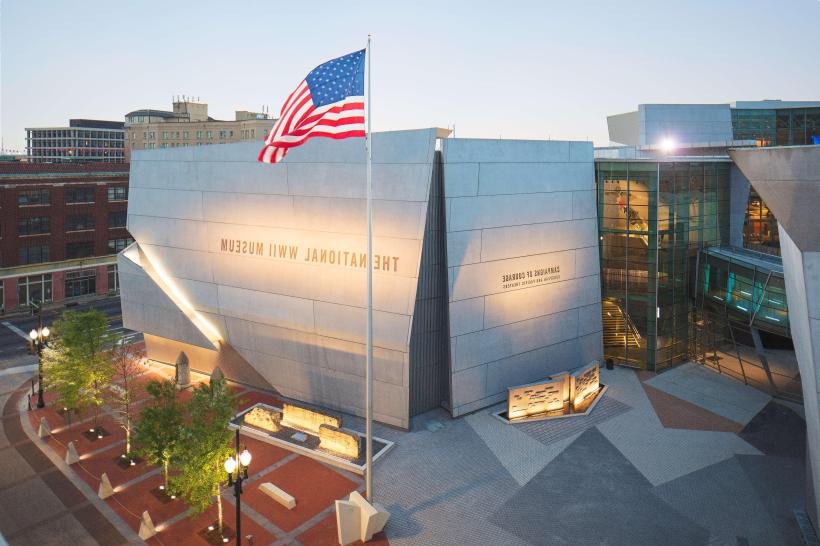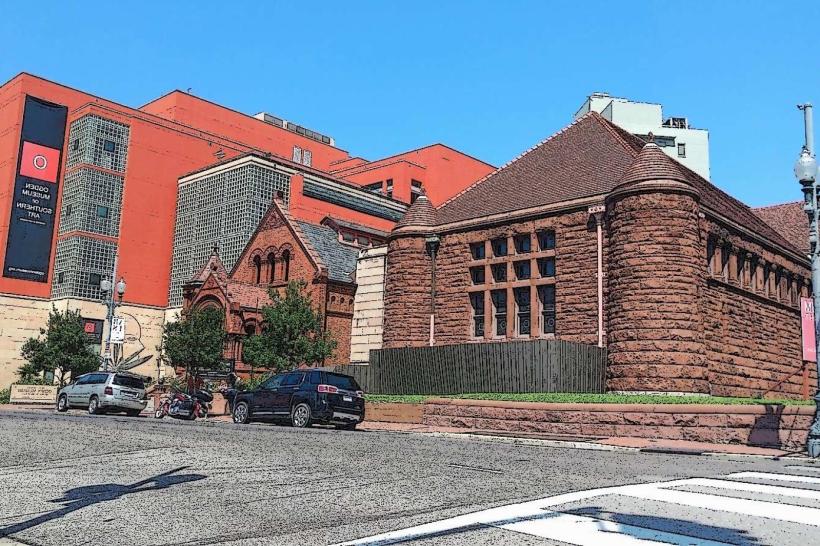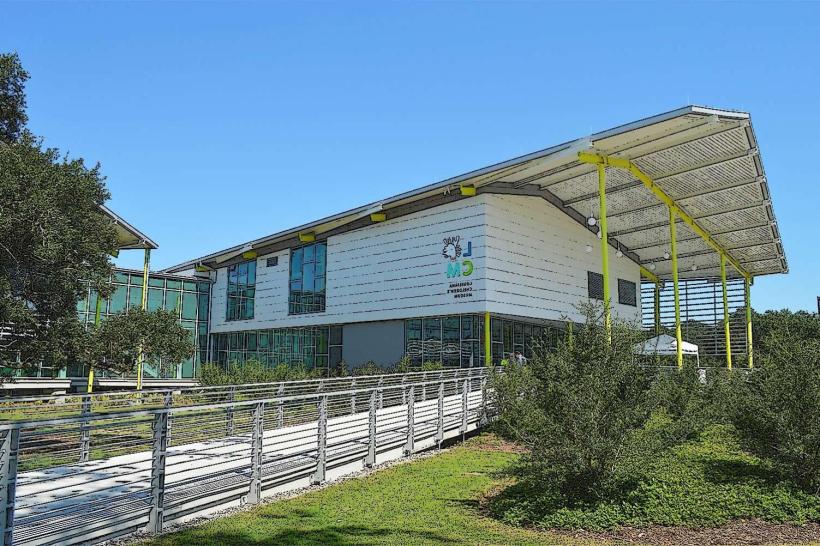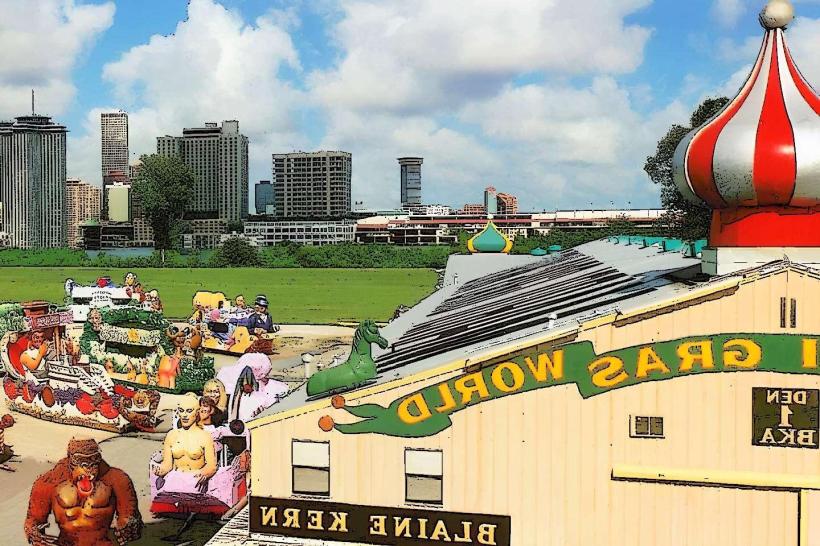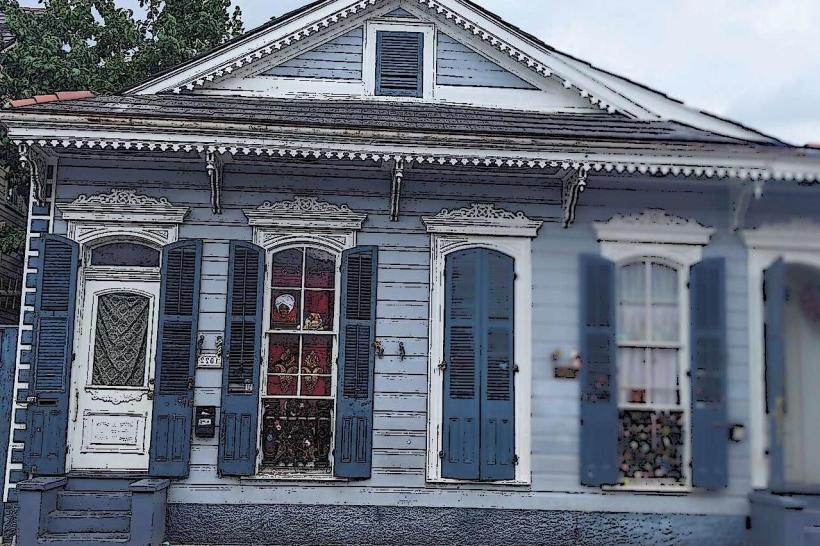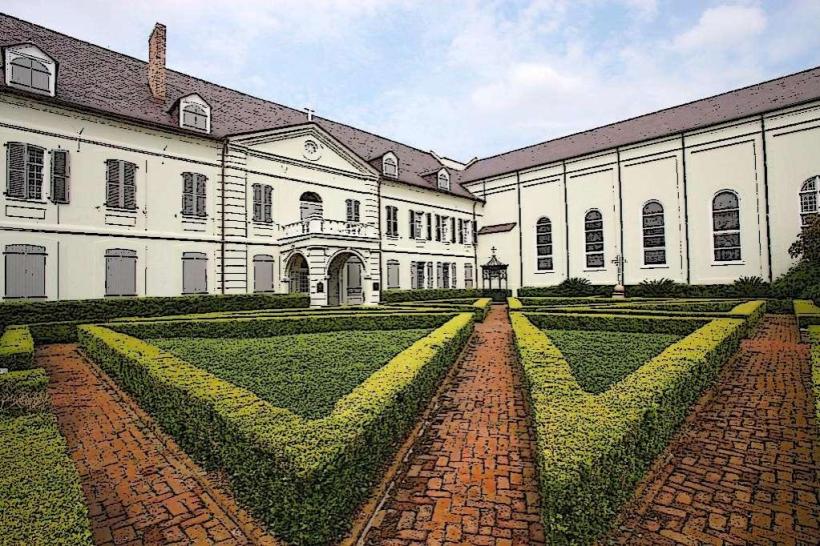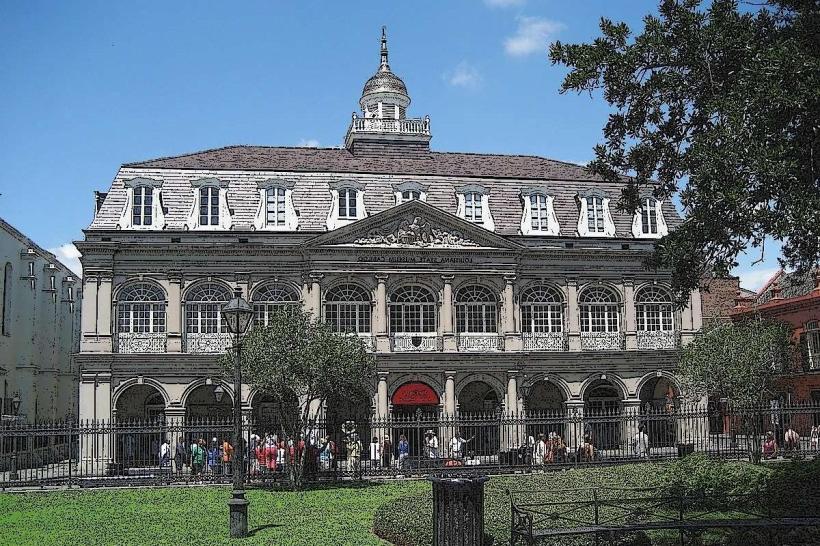Information
Landmark: The CabildoCity: New Orleans
Country: USA Louisiana
Continent: North America
The Cabildo, New Orleans, USA Louisiana, North America
The Cabildo is one of New Orleans’ most historically significant buildings, located on the northern side of Jackson Square in the French Quarter, adjacent to St. Louis Cathedral. Constructed between 1795 and 1799 during the Spanish colonial period, it originally served as the city’s administrative center, housing the offices of municipal government officials. Its name, “Cabildo,” derives from the Spanish term for the governing council or town hall, reflecting its original civic purpose.
Architecture and Layout: The Cabildo is a striking example of Spanish colonial architecture adapted for the subtropical climate of New Orleans. The building features a three-story structure with a symmetrical façade, arched arcades on the ground floor, tall windows with shutters, and a mansard roof with dormers, combining elegance with functionality. The arcade provided shaded walkways, essential for comfort in the city’s humid climate, while the central courtyard served as a practical and social gathering space. The building’s design balances Spanish colonial formality with the vibrancy of Creole aesthetics, making it visually and historically significant.
Historical Significance: The Cabildo has played a pivotal role in Louisiana’s political and cultural history. Most notably, it was the site of the official transfer of the Louisiana Territory from Spain to the United States in 1803, marking the beginning of American governance in the region. This event, part of the Louisiana Purchase, is a defining moment in the city’s and the nation’s history. Over the centuries, the Cabildo also functioned as a courtroom, council chambers, and governmental office, witnessing trials, civic decisions, and social events that shaped New Orleans’ development.
Current Role as a Museum: Today, the Cabildo is part of the Louisiana State Museum system, housing extensive exhibits on Louisiana’s history, culture, and society. Visitors can explore displays on colonial governance, the Louisiana Purchase, early New Orleans society, and the evolution of law and civic life in the region. The museum includes artifacts such as historical documents, period furnishings, costumes, and artwork that illustrate the city’s multicultural heritage. The second and third floors host rotating and permanent exhibitions, providing in-depth insight into Louisiana’s complex past, from its colonial era through the 20th century.
Visitor Experience: The Cabildo offers an immersive historical experience, combining architecture, artifacts, and narrative to convey the city’s layered history. Its proximity to Jackson Square allows visitors to contextualize the building within the broader landscape of the French Quarter, linking civic, religious, and cultural spaces. Educational programs, guided tours, and interactive exhibits enrich the experience, highlighting the building’s importance as a center of governance, culture, and public life over more than two centuries.
Cultural Importance: Beyond its museum function, the Cabildo stands as a symbol of New Orleans’ resilience and historical continuity. Its preservation and adaptation as a cultural institution allow contemporary audiences to engage directly with the city’s colonial and early American heritage. The building’s elegant architecture, historical gravitas, and role in shaping Louisiana’s identity make the Cabildo an essential landmark for understanding the French Quarter and the broader story of New Orleans.

